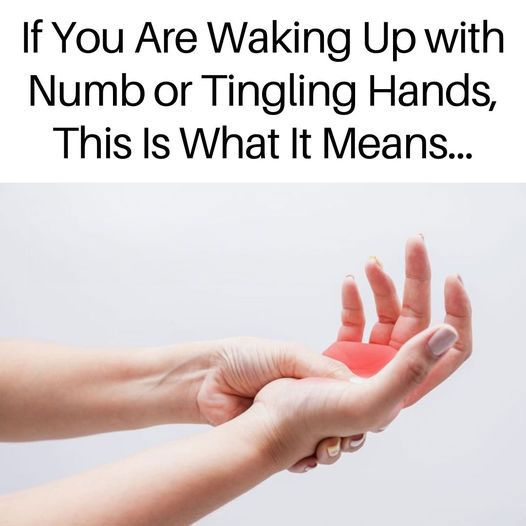I didn’t know… 😳😳Check the comments 👇
Numbness or tingling in your hands, often called “pins and needles,” can be a minor inconvenience or a sign of a health issue. Here are common causes:
– **Improper Sleeping Position**: Sleeping awkwardly can compress nerves and restrict blood flow, causing temporary numbness.
– **Repetitive Motions**: Activities like typing or tool use can lead to nerve compression, such as carpal tunnel syndrome.
– **Vitamin B12 Deficiency**: Low B12 levels can cause nerve damage, leading to tingling and other symptoms like fatigue.
– **Electrolyte Imbalance**: Abnormal calcium, potassium, or sodium levels can affect nerves, often due to dehydration or medications.
– **Diabetes**: High blood sugar can damage peripheral nerves, causing diabetic neuropathy.
– **Neck/Spinal Issues**: Herniated discs or neck conditions can compress nerves, radiating tingling to hands.
– **Autoimmune Disorders**: Conditions like rheumatoid arthritis or Guillain-Barré syndrome can damage nerves.
– **Poor Circulation**: Raynaud’s phenomenon or arterial plaque can reduce blood flow, causing tingling.
– **Cysts/Tumors**: Growths pressing on nerves may cause numbness.
– **Infections**: Diseases like shingles or Lyme disease can directly impact nerve function.
**When to Seek Help**
See a doctor if numbness comes with:
– Weakness or paralysis.
– Slurred speech or confusion.
– Dizziness or loss of coordination.
– Spreading numbness.
**Conclusion**
Occasional tingling is usually harmless, but persistent or severe symptoms may indicate an underlying condition. A healthcare provider can diagnose and treat the issue effectively.







Post Comment